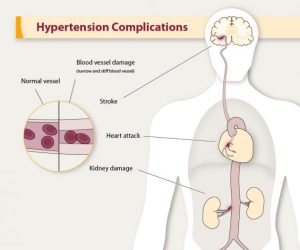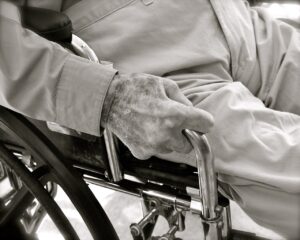Pulmonary hypertension, often abbreviated as PH, is a chronic and progressive condition characterized by high blood pressure in the arteries of the lungs. This condition can lead to various complications, including heart failure and a decreased quality of life.
While medical treatments play a crucial role in managing pulmonary hypertension, self-care practices are equally important in improving symptoms, slowing disease progression, and enhancing overall well-being.

Table of Contents
TogglePulmonary Hypertension
Pulmonary hypertension can be caused by several factors, including genetics, certain medical conditions, and exposure to toxins or drugs. Individuals with conditions such as congenital heart disease, connective tissue disorders, or liver disease are at a higher risk of developing pulmonary hypertension. Symptoms may include shortness of breath, fatigue, chest pain, and swelling in the ankles or abdomen. Diagnosis typically involves a medical history review, physical examination, imaging tests, and cardiac catheterization.
Importance of Self-Care in Pulmonary Hypertension
Self-care plays a vital role in managing pulmonary hypertension and improving the overall quality of life. By actively participating in their care, individuals with pulmonary hypertension can better control their symptoms, reduce the risk of complications, and maintain better health outcomes.
Effective Self-Care Strategies
Medication Adherence
Consistent adherence to prescribed medications is essential in managing pulmonary hypertension. Medications such as vasodilators, diuretics, and anticoagulants help to reduce blood pressure in the lungs, improve heart function, and prevent blood clots.
Lifestyle Changes
Making positive lifestyle changes can significantly impact the progression of pulmonary hypertension. This includes quitting smoking, avoiding excessive alcohol consumption, and maintaining a healthy weight. Engaging in regular physical activity and managing stress can also contribute to better overall health.
Emotional Support
Living with a chronic condition like pulmonary hypertension can be emotionally challenging. Seeking support from friends, family, or support groups can provide emotional encouragement and practical assistance in coping with the disease’s daily challenges.
Diet and Nutrition Recommendations
Importance of a Balanced Diet
A balanced diet rich in fruits, vegetables, lean proteins, and whole grains is essential for individuals with pulmonary hypertension. Foods high in sodium should be limited, as excess sodium can lead to fluid retention and worsen symptoms.
Foods to Avoid and Include
Processed foods, high-fat dairy products, and foods high in cholesterol should be avoided. Instead, focus on incorporating foods rich in omega-3 fatty acids, such as fatty fish, nuts, and seeds. These foods can help reduce inflammation and improve heart health.
Exercise Guidelines
Importance of Exercise in Pulmonary Hypertension
Regular exercise is beneficial for individuals with pulmonary hypertension as it helps improve cardiovascular health, strengthen muscles, and enhance overall endurance. However, it’s essential to consult with a healthcare provider before starting any exercise program to ensure safety and effectiveness.
Recommended Exercises
Low-impact activities such as walking, swimming, cycling, and yoga are generally well-tolerated by individuals with pulmonary hypertension. These exercises help improve circulation, increase oxygen delivery to tissues, and boost energy levels.
Managing Stress and Anxiety
Techniques for Stress Reduction
Stress management techniques such as deep breathing exercises, meditation, and mindfulness can help reduce anxiety and promote relaxation. Engaging in hobbies, spending time outdoors, and maintaining a positive outlook can also contribute to overall well-being.
importance of Mental Health Support
Seeking professional counseling or therapy can be beneficial for individuals struggling with stress, anxiety, or depression related to pulmonary hypertension. Addressing mental health concerns is an essential aspect of holistic self-care.
Sleep Hygiene
importance of Quality Sleep
Getting adequate and restful sleep is crucial for individuals with pulmonary hypertension. Poor sleep quality can exacerbate symptoms and contribute to daytime fatigue and impaired cognitive function.
Tips for Improving Sleep
Establishing a regular sleep schedule, creating a relaxing bedtime routine, and optimizing the sleep environment can help improve sleep quality. Avoiding caffeine, electronic devices, and stimulating activities before bedtime can also promote better sleep.
Monitoring Symptoms and Progress
Keeping Track of Symptoms
Maintaining a symptom diary can help individuals track changes in symptoms, medication effectiveness, and overall health status. This information can be valuable during medical appointments and discussions with healthcare providers.
Regular Follow-Ups with Healthcare Providers
Regular follow-up appointments with healthcare providers are essential for monitoring disease progression, adjusting treatment plans, and addressing any emerging concerns. Open communication with healthcare providers fosters a collaborative approach to managing pulmonary hypertension.
Avoiding Potential Triggers
Environmental Factors
Exposure to environmental pollutants, high altitudes, extreme temperatures, and high-pressure environments can exacerbate symptoms in individuals with pulmonary hypertension. Taking precautions and avoiding potential triggers can help minimize symptom flare-ups.
Medication Interactions
Certain medications, including over-the-counter drugs and herbal supplements, may interact with prescribed medications for pulmonary hypertension. It’s essential to consult with a healthcare provider or pharmacist before starting any new medication or supplement regimen.
Conclusion
In conclusion, self-care plays a crucial role in managing pulmonary hypertension and improving the overall quality of life. By incorporating effective self-care strategies, such as medication adherence, healthy lifestyle changes, and emotional support, individuals with pulmonary hypertension can better control their symptoms, slow disease progression, and lead fulfilling lives.
FAQs
- Can pulmonary hypertension be cured with self-care alone? While self-care plays an essential role in managing pulmonary hypertension, it’s not a cure. Medical treatment is necessary to control symptoms and prevent complications.
- Are there any dietary supplements recommended for pulmonary hypertension? Dietary supplements should be used with caution and only under the guidance of a healthcare provider. Some supplements may interact with prescribed medications or exacerbate symptoms.
- How often should individuals with pulmonary hypertension see their healthcare providers? The frequency of follow-up appointments may vary depending on an individual’s health status and treatment plan. It’s essential to follow the recommendations of healthcare providers for regular monitoring and adjustments to treatment as needed.
- Can stress worsen the symptoms of pulmonary hypertension? Yes, stress can exacerbate the symptoms of pulmonary hypertension. Practicing stress management techniques and seeking emotional support can help individuals cope with the challenges of living with this condition.
Read more: Hypertension

